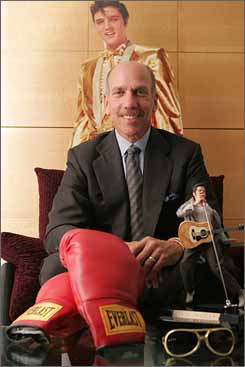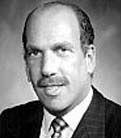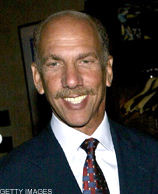 |
 |

Introd About CFX, Inc. CKx, Inc. is engaged in the ownership, development and commercial utilization of entertainment content. To date, we have focused on acquiring globally recognized entertainment content and related assets, including the rights to the name, image and likeness of Elvis Presley, the operations of Graceland, the rights to the name, image and likeness of Muhammad Ali and proprietary rights to the IDOLS television brand, including the American Idol series in the United States and local adaptations of the IDOLS television show format which, collectively, air in over 100 countries around the world. We plan to continue to make strategic acquisitions of, or partner or align with, companies or individuals that control various forms of established entertainment content, which may include intellectual property rights in music, film, television programming, written works and characters, rights to names, images and likenesses, video games, corporate brands and other related assets. Recent Releases
May 7, 2009 Mar 2, 2009
Media baron Robert F.X. Sillerman had a great run until he tried to break into real estate -- with Elvis Presley as his partner. The 61-year-old Sillerman -- who works out six days a week, offsetting an appetite for ice cream and cookies -- made a fortune in radio, buying up stations nationwide and selling them en masse for $2.1 billion in 1998. He then rolled up concert venues and talent agencies for the likes of Metallica and basketball star Michael Jordan and sold that business for $4 billion in 2000. A year later, he co-produced the Broadway adaptation of his friend Mel Brooks’s movie “The Producers.” Sillerman made what may have been his best deal in 2005, when he bought television’s American Idol, the talent show that has franchises around the world and tops U.S. TV ratings. Then, in 2007, Sillerman rolled the dice on real estate -- at exactly the wrong time. He started a company called FX Real Estate and Entertainment Inc. and took over 18 acres (7 hectares) on the Las Vegas Strip. He borrowed $475 million through Zurich-based Credit Suisse Group AG to pay for the property and start developing a resort with an Elvis theme. Sillerman owns the commercial rights to Elvis -- and Muhammad Ali -- through another company, New York-based CKX Inc., which also owns Idol. The FX investment turned out to be a blunder by a dealmaker who, according to business partners and friends, rarely makes them. “Bob always sees the big picture and knows how to maximize things,” Brooks, 82, says. “He’s one of the brightest people I know.” Track Record Sillerman has built and sold five public companies, making money for investors -- and himself -- each time. One of those sales prompted a class-action lawsuit in 1998 from an investor who accused him of a conflict of interest when he executed a stock swap between two companies he controlled. He settled the case. In June 2007, he proposed to take American Idol parent CKX private, offering CKX holders $1.3 billion in cash, plus shares of New York-based FX Real Estate, again drawing a shareholder suit. That deal died along with Sillerman’s real estate dreams. The Vegas project is in default. Plans for a new hotel and convention center at Graceland, Elvis’s ‘Golden Touch’ A separate real estate venture -- construction of a resort on the Caribbean island of Anguilla, featuring residences costing as much as $12 million and a hotel with personal butlers -- also stands unfinished and in default. “Some people are mad at Bob because he had the golden touch,” says William Huff, founder of W.R. Huff Asset Management Co. in Huff says he hasn’t given up on the Vegas project. “There are a lot of people who are more screwed than Bob,” Huff, 59, says. “Bob never broke ground, which is phenomenal. Once you have the steel up, you’re toast.” Priscilla Presley, Elvis’s wife from 1967 to 1973, says the economy, not Sillerman, is to blame. “I have a lot of confidence in Bob,” she says. “When the timing is right, I’m sure all this will come back on the boards.” Sillerman says he got into something he didn’t really understand. “I’m not very knowledgeable about real estate,” he says in an interview at CKX’s 16th-floor offices on Madison Avenue in
Practical Joker Sillerman keeps what’s left of his gray hair close cut and sports a mustache. A Lance Armstrong “LiveStrong” cancer wristband -- Sillerman survived tongue cancer in 2001 -- peeks from under French cuffs and the sleeve of a blue suit coat. He wears no tie. Sillerman has trouble being serious even in serious times. He loves practical jokes and once paid a bellhop in There are signs that he’s stretched. In March 2008, he took out a $23 million loan from Deutsche Bank AG on his five-story modernist town house on the Upper East Side of Manhattan, according to property records. The house has a rooftop lap pool and a bullet-proof glass atrium installed by a previous owner, S.I. Newhouse Jr., head of Conde Nast Publications Inc., according to a 1994 New York Times article about the house. $29 Million Sillerman says the loan was for estate planning purposes and declines to say more. He disclosed another loan from Deutsche Bank, for $29 million, in an April filing with the U.S. Securities and Exchange Commission. It’s backed by his 29 percent stake in CKX. If CKX shares fall to $2.50, according to the filing, the loan defaults. CKX closed at $6.97 on Friday, up 90 percent in 2009 after a 64 percent slide in 2008. This loan, Sillerman says, was for investment purposes. CKX is good collateral. Sillerman is chairman and chief executive officer of the company, which he formed in 2004 to buy up entertainment properties. It acquired Simon Fuller’s 19 Entertainment Ltd., the company that owns American Idol, in 2005, for $161 million plus 1.9 million shares of CKX. The show is based on a production called “Pop Idol” that Fuller, 49, launched in Top Show The show, which auditions would-be pop-music stars, features a panel of judges that screens out contestants in the early rounds. Viewers vote by telephone and text message for winners in later segments. American Idol has been the most- watched program in the high-consuming 18-to-49 age group in the “It’s the only show that can consistently bring in 24 or 25 million viewers in a telecast,” says Brad Adgate, senior vice president at Horizon Media Inc., a New York-based company that buys slots for advertisers. That audience means News Corp.’s Fox network can charge advertisers, which include Apple Inc.,AT&T Inc. and Coca-Cola Idol finalists have sold more than 42 million albums and 47 million single-song downloads, according to Billboard magazine. The fourth album by the winner in the show’s first season, Kelly Clarkson, debuted at No. 1 on the Billboard 200 this March and sold 255,000 copies in its first week.
Fuller runs the CKX subsidiary that produces Idol. He got a $1.49 million bonus on top of a $1.04 million salary in 2008. He also received 200,000 shares of CKX stock. Sillerman got no new shares in 2008. Hands Off Until this year’s finale, Sillerman had never been to a taping of Idol, Fuller says. “He trusts it’s being run smoothly,” Fuller says. “He doesn’t meddle with things that aren’t broken.” Sillerman says his business is brands, like Elvis and American Idol. The Vegas real estate project is just a vehicle for Elvis. Similarly, CKX says it will launch a consumer product based on Ali, whose name and image Sillerman bought from the Ali family for $50 million in 2006. Sillerman won’t say what the product is. Earlier plans to sell Ali-branded shoes and apparel at retailer Steve & Barry’s LLC collapsed when the chain went bankrupt. Paul Kanavos, a partner in the Vegas and Though his net worth has fallen along with CKX and FX Real Estate stock, Sillerman still lives large. He and his wife, Laura -- a copywriter, author and poet -- split their time between the town house in Bobecue Blast Until 2006, the Sillermans threw an annual picnic in “It got to be sort of silly,” Sillerman says. Silly can be a good thing in Sillerman’s world. He once dressed up as a Turkish diplomat on the Orient Express between Syndicating Lassie Morrow, 71, has worked and partied with Sillerman since 1978, when the pair began buying radio stations together. Entertainment is in Sillerman’s blood. His father, Michael, founded the New York-based Keystone Radio Network and was the man who syndicated Lassie, the black-and-white television show starring a bighearted collie dog. Sillerman inherited the “X” in his name from his father. Family code dictated that Sillerman not learn what the initial stood for until his 18th birthday and that he not disclose the name to anyone except his future spouse. Even Morrow doesn’t know. Bob and his brother, Michael, grew up in the affluent Riverdale neighborhood in the
Underwear Ambush Sillerman met Morrow in The two became friends and went into business together, hiring a small plane to fly them from town to town as they bought radio stations. Morrow was astonished at the boldness of Sillerman’s dealmaking. “You and I buy a couple loaves of bread,” Morrow says. “Bob buys the bakery.” Sillerman and Morrow sold their stations to Bell Broadcasting for $50 million in 1985. In 1988, Sillerman bought New York-based radio station operator Metropolitan Broadcasting from investment bank Morgan Stanley. He took a bank loan to pay Morgan Stanley for its equity and then hived off one of Metropolitan’s four stations and sold it to another company he controlled, Command Communications, using the proceeds to pay off the loan, according to a 1989 Wall Street Journal story on the transaction. Huff Irked FX Real Estate investor Huff held Metropolitan bonds, and Sillerman’s move made them riskier. “That did not sit well with me,” Huff says, and he sued. Sillerman invited Huff to his office to talk. They eventually settled the matter. Huff says he was so impressed with how Sillerman handled the purchase that he joined Sillerman’s next deal and almost every one thereafter. Sillerman sold the remaining Metropolitan stations to Westinghouse Broadcasting Co. for $400 million in 1989. Three years later, he started another radio chain, SFX Broadcasting Inc., with partner Steve Hicks, brother of Tom Hicks, the founder of Dallas-based buyout firm Hicks, Muse, Tate & Furst Inc., now called HM Capital Partners LLC. SFX went public in 1993, a perfect time for Sillerman to be in the radio business. A federal law passed in February 1996 lifted the limit on the number of stations a radio broadcaster could own nationally. Broadcasters amassed stations, boosting ad revenue by reaching wider audiences and cutting costs by combining sales forces. Buying Billy Joel In 1997, Sillerman agreed to sell SFX Broadcasting to Capstar Broadcasting Corp., a company formed by Hicks Muse and Steve Hicks, for $2.1 billion in cash and assumed debt. Not content to roll up just one industry, Sillerman in 1995 started a separate public company called Marquee Group Inc. that bought up agencies that represented athletes and musicians. One of its purchases was QBQ Entertainment Inc., a talent agency whose clients included singer and piano player Billy Joel, heavy metal band Metallica and the late comedian Rodney Dangerfield. “We spent 30 minutes out of a 32-minute meeting talking about Rodney Dangerfield,” QBQ founder Dennis Arfa says. “Two days later, I got a proposal.” Sillerman bought QBQ for $3.1 million in cash and payments of $1.6 million a year for eight years, according to regulatory filings. Arfa declined to discuss terms of the deal. Dead’s Promoter Marquee was one of two companies Sillerman ran that bought up entertainment properties. The other was SFX Entertainment Inc., a subsidiary of SFX Broadcasting that was not part of the deal with Capstar. The company bought concert venues and regional promoters, including Bill Graham Presents, the Sillerman made deals at high velocity. On one day alone, May 4, 1998, SFX announced five. The day’s biggest transaction was the purchase, for $100 million, of Falk Associates Management Enterprises, a company owned by basketball agent David Falk, who represented the Chicago Bulls’ Michael Jordan and the New York Knicks’ Patrick Ewing. Falk says Sillerman initially wanted him to join Marquee. Falk insisted on being part of the more prestigious SFX. “It was like asking if Rolls-Royce would like to join the Yugo group,” Falk, 58, says. Lawsuit On that same May 4, Marquee disclosed that SFX had made a bid for it, too. The price, disclosed two months later, was $100 million in SFX stock. At the time, Sillerman was chairman of both companies and owned 9 percent of Marquee’s shares. A Marquee shareholder named Herbert Behrens led a class- action lawsuit against Sillerman, Marquee and SFX, which read, in part, “The individual defendants have clear and material conflicts of interest and are acting to better the interests of SFX and themselves at the expense of Marquee’s public stockholders.” The suit wasn’t settled until September 2000, when SFX agreed to pay Marquee shareholders an additional $2.9 million without admitting wrongdoing. By that time, Sillerman was one deal down the road. The month before the settlement, he sold SFX Entertainment to Clear Channel Communications Inc., the radio and billboard company, for $4 billion. Sillerman’s mark on the concert business remains. Clear Channel spun off SFX in 2005 as Live Nation Inc., now the world’s largest concert promoter. Cancer Shock Sillerman’s seemingly charmed life took a blow in 2001. While shaving one morning, he felt a lump in his neck. The diagnosis was cancer in the base of his tongue, a surprise since he’d never smoked cigarettes -- or anything else, he says. He underwent chemotherapy and radiation treatments. Around the same time, he helped his friend Mel Brooks out of a bind. Brooks was working on a theater adaptation of “The Producers,” a 1968 comedy about a pair of bumbling swindlers. When one of the backers, DreamWorks SKG co-founder David Geffen, pulled out, Sillerman jumped in, forming a partnership with Brooks, and becoming one of four producer groups. “I have no idea how business really works,” Brooks says. “I made him one of the producers to watch my back.” The show ran for 2,502 performances and won a record-breaking 12 Tony Awards. Sillerman later produced Brooks’s Broadway adaptation of his movie “Young Frankenstein.” Sillerman’s next big deal unfolded in 2004, when he bought Sports Entertainment Enterprises Inc., a defunct owner of a golf course in Sillerman paid $50.1 million in cash, assumed $25.1 million of debt and gave Lisa Marie a batch of stock. A 90-year lease on Those plans are on hold. Sillerman also agreed to pay Priscilla Presley $6.5 million for commercial rights to the Presley name and to pay her a consulting fee of $560,000 a year for 10 years. Four months later, Sports Entertainment bought 19 Entertainment. Sillerman changed the name to CKX -- for content is king, plus that ubiquitous X. In April 2006, CKX bought an 80 percent interest in the name and likeness of Muhammad Ali. Anguillan Dreams While assembling the pieces of CKX, Sillerman made his fateful move into real estate. The ultra-swank hotel in Anguilla, a self-governing Sillerman and Kanavos, his partner, then decided to also build a resort. Kanavos is the founder of closely held, New York-based Flag Luxury Properties LLC, in which Sillerman owns a 30 percent stake. Flag, which led the development, took out a $180 million loan from investors arranged by Credit Suisse. Sillerman’s Elvis project in Vegas got rolling in mid-2007. That June, Sillerman announced a series of transactions through which he and Fuller would take CKX private, buying out other shareholders with cash and FX stock. Andrew Baker, then an analyst at Cathay Financial Inc., said at the time that the price was too low. American Idol was red-hot, and the Vegas project was just a plan. Another Lawsuit As plans for the purchase went forward, in December 2007 CKX shareholder Richard Nierenberg sued, charging, “The purpose of the merger is to enable Sillerman and his associates to acquire the company and its valuable assets for their own benefit at the expense of CKX’s public shareholders.” Sillerman says the suit has no merit. “Every transaction in Sillerman says one reason he wanted to take CKX private is that management had its eye on properties whose owners didn’t want to sell to a public company. The complaint has yet to be resolved, according to CKX filings with regulators. Nierenberg’s lawyer, Joseph Rosenthal, didn’t return phone calls. Sillerman and Fuller intended to pay for the shares with a $700 million loan, according to regulatory filings. Then the credit crisis hit, and banks stopped lending. Defaulted in Vegas By September 2008, Sillerman was in default on the $475 million Credit Suisse loan because the value of the Strip property had plunged far enough to violate the loan’s covenants. Sillerman’s lenders seized cash collateral in the company’s reserve accounts in January and applied $21 million of that to the loan. Construction in Sillerman declined to comment on the matter. Throughout all of the setbacks, Sillerman has remained preternaturally calm, Kanavos says. “There hasn’t been a week in the last 12 months when we haven’t had bad news,” Kanavos said in April. And not once has Sillerman panicked or even raised his voice, he says. Sillerman says his battle with cancer puts his real estate flameout in perspective. “Not everything has worked out in business recently, but I’ve got no complaints,” he says. “You only get one chance at this. I’ve been luckier than anyone I know.” None of his many friends in the entertainment industry will be surprised if Bob Sillerman launches a new public company sometime soon -- if only to put the failure of the last one behind him.
'Ticketmaster' - Robert Sillerman: People interested in the sale of EPE should find this detailed article about Robert Sillerman particularly interesting. It details many of his business successes and gives several insights into the psychology of his character. (Sale of Estate/Spotlight Article, Source: NewYorkMetro.com, orig. pub. Dec 2004) From the EIN Archives: All about Robert F.X. Sillerman (19 Dec 2004) For even more on Robert F.X. Sillerman and the sale of EPE click here
|
|



